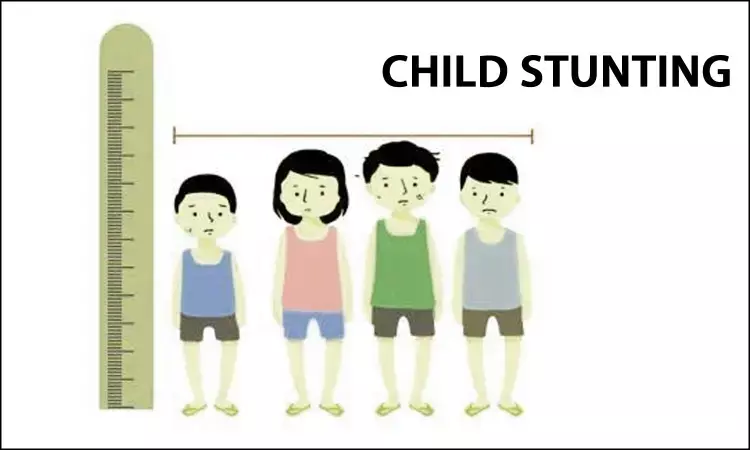- Home
- Medical news & Guidelines
- Anesthesiology
- Cardiology and CTVS
- Critical Care
- Dentistry
- Dermatology
- Diabetes and Endocrinology
- ENT
- Gastroenterology
- Medicine
- Nephrology
- Neurology
- Obstretics-Gynaecology
- Oncology
- Ophthalmology
- Orthopaedics
- Pediatrics-Neonatology
- Psychiatry
- Pulmonology
- Radiology
- Surgery
- Urology
- Laboratory Medicine
- Diet
- Nursing
- Paramedical
- Physiotherapy
- Health news
- Fact Check
- Bone Health Fact Check
- Brain Health Fact Check
- Cancer Related Fact Check
- Child Care Fact Check
- Dental and oral health fact check
- Diabetes and metabolic health fact check
- Diet and Nutrition Fact Check
- Eye and ENT Care Fact Check
- Fitness fact check
- Gut health fact check
- Heart health fact check
- Kidney health fact check
- Medical education fact check
- Men's health fact check
- Respiratory fact check
- Skin and hair care fact check
- Vaccine and Immunization fact check
- Women's health fact check
- AYUSH
- State News
- Andaman and Nicobar Islands
- Andhra Pradesh
- Arunachal Pradesh
- Assam
- Bihar
- Chandigarh
- Chattisgarh
- Dadra and Nagar Haveli
- Daman and Diu
- Delhi
- Goa
- Gujarat
- Haryana
- Himachal Pradesh
- Jammu & Kashmir
- Jharkhand
- Karnataka
- Kerala
- Ladakh
- Lakshadweep
- Madhya Pradesh
- Maharashtra
- Manipur
- Meghalaya
- Mizoram
- Nagaland
- Odisha
- Puducherry
- Punjab
- Rajasthan
- Sikkim
- Tamil Nadu
- Telangana
- Tripura
- Uttar Pradesh
- Uttrakhand
- West Bengal
- Medical Education
- Industry
Living at higher altitudes linked to higher levels of child stunting: JAMA

Addis Ababa, Ethiopia:Researchers at the International Food Policy Research Institute (IFPRI) and Addis Ababa University have found in a new study that children residing at a higher altitude may have slow growth even when living in ideal home environments.
Therefore specific attention and health care guidance are needed for the management of pregnancies and early child development in high-altitude settings.
The study has been published in the journal JAMA Pediatrics.
The study provides new insight in the relationship between altitude and undernutrition and the additional efforts needed to ensure policy interventions are appropriately tailored to high altitude contexts.
"More than 800 million people live at 1,500 meters above sea level or higher, with two-thirds of them in Sub-Saharan Africa, and Asia. These two regions host most of the world's stunted children so it is important to understand the role that altitude plays in growth" said IFPRI Senior Research Fellow and co-author of the study, Kalle Hirvonen.
"If children living at altitude are, on average, more stunted than their peers at sea level, then a more significant effort to address high altitude stunting is needed."
The study analyzed height-for-age data of more than 950,000 children from 59 countries. The data were compiled through the Advancing Research on Nutrition and Agriculture (AReNA) project funded by the Bill & Melinda Gates Foundation.
Children were classified as having lived in an ideal-home environment if they were born to highly educated mothers, had good health-service coverage and high living conditions. Global tracking of growth rates relies on the assumption that children living in such environments have the same growth potential, irrespective of genetic makeup or geographic location.
"The data clearly indicated that those residing in ideal-home environments grew at the same rate as the median child in the growth standard developed by the World Health Organization (WHO), but only until about 500 meters above sea level (masl). After 500 masl, average child height-for-age significantly deviated from the growth curve of the median child in the reference population", said Hirvonen. The research further shows that these estimated growth deficits are unlikely to be due to common risk factors such as poor diet and disease.
The study suggests that the effects of altitude were most pronounced during the perinatal period i.e., the time leading up to, and immediately after, the birth. "Pregnancies at high-altitudes are characterized by chronic hypoxia, or an inadequate supply of oxygen, which is consistently associated with a higher risk of fetal growth restriction. Restricted growth in the womb is in turn a leading risk factor for linear growth faltering" said Hirvonen.
There is some evidence to suggest that residing at high altitude over multiple generations may lead to some genetic adaption, but these findings did not hold for women with only a few generations of high-altitude ancestry. "Women of high-altitude ancestry were able to partially cope with the hypoxic conditions through increased uterine artery blood flow during pregnancy, but it may take more than a century before such adaptions are developed", said Baye.
Hirvonen and Baye conclude that the WHO growth standards for children should not be adjusted because growth faltering at high altitudes is unlikely to be the result of physiological adaptations. Instead, they call for greater attention and health-care guidance for managing pregnancies in high-altitude settings.
"A first step is to unravel the complex relationship linking altitude, hypoxia and fetal growth to identify effective interventions. Failing to address altitude-mediated growth deficits urgently can fail a significant proportion of the world population from meeting the Sustainable Development Goals and World Health Assembly nutrition targets" said Baye.
Hina Zahid Joined Medical Dialogue in 2017 with a passion to work as a Reporter. She coordinates with various national and international journals and association and covers all the stories related to Medical guidelines, Medical Journals, rare medical surgeries as well as all the updates in the medical field. Email: editorial@medicaldialogues.in. Contact no. 011-43720751
Dr Kamal Kant Kohli-MBBS, DTCD- a chest specialist with more than 30 years of practice and a flair for writing clinical articles, Dr Kamal Kant Kohli joined Medical Dialogues as a Chief Editor of Medical News. Besides writing articles, as an editor, he proofreads and verifies all the medical content published on Medical Dialogues including those coming from journals, studies,medical conferences,guidelines etc. Email: drkohli@medicaldialogues.in. Contact no. 011-43720751


